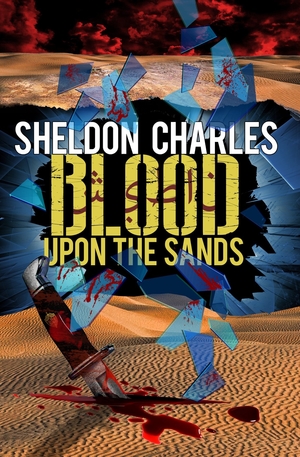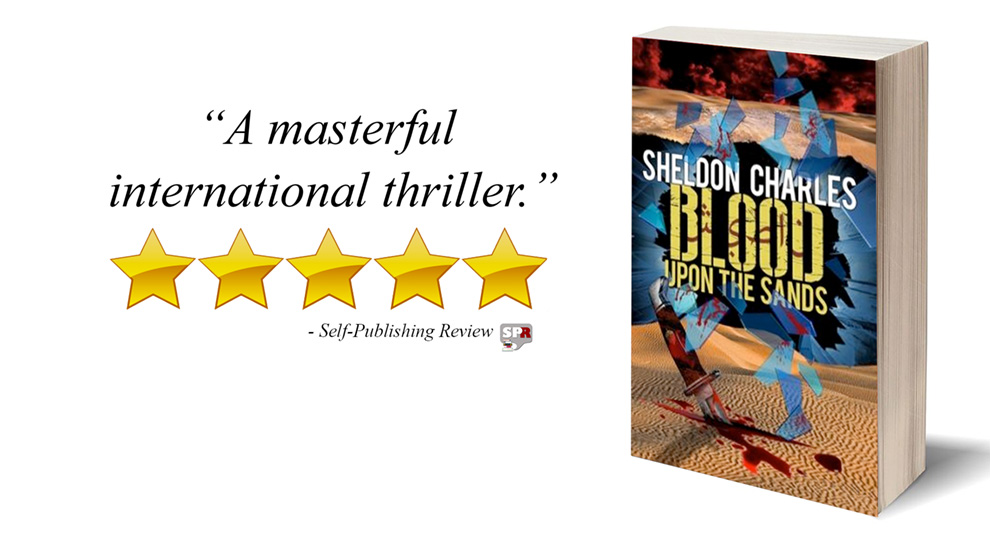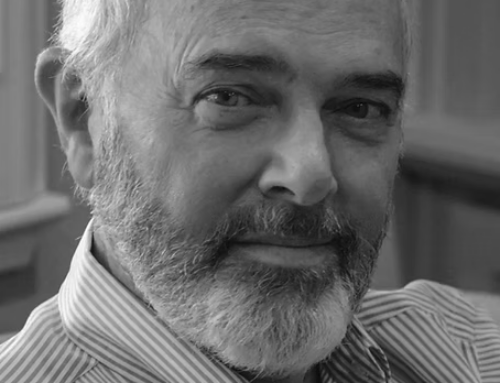 Sheldon Charles is a decorated Air Force veteran, whose career has taken him around the globe, and given his writing a unique international flair. He is the author of Three Paperclips & a Grey Scarf, Blood Upon the Sands and From Within the Firebird’s Nest. His last book (From Within the Firebird’s Nest, the third book in the Evan Davis Trilogy) held the Number One Bestseller spot on Amazon for Russian Historical Fiction, and was in the Top Ten for War Fiction, for 2018. Sheldon currently resides in Michigan, where he is a member of Michigan Writers. He can be contacted at shel@valkyriespirit.com, or www.facebook.com/TheRealSheldonCharles.
Sheldon Charles is a decorated Air Force veteran, whose career has taken him around the globe, and given his writing a unique international flair. He is the author of Three Paperclips & a Grey Scarf, Blood Upon the Sands and From Within the Firebird’s Nest. His last book (From Within the Firebird’s Nest, the third book in the Evan Davis Trilogy) held the Number One Bestseller spot on Amazon for Russian Historical Fiction, and was in the Top Ten for War Fiction, for 2018. Sheldon currently resides in Michigan, where he is a member of Michigan Writers. He can be contacted at shel@valkyriespirit.com, or www.facebook.com/TheRealSheldonCharles.
Tell us about your book.
Blood Upon the Sands walks the fine line between fiction and nonfiction. Whereas the events in the book are fictional, they occur amongst real-world truths.
Writer Evan Davis is back in Blood Upon the Sands, a taut and suspenseful political thriller. This time, work takes him to Kuwait under the patronage of affluent horse breeder Hamad Al-Bourisli. Hamad hired him to write about modern culture in Kuwait, in hopes that the country and its culture will be seen more positively. Evan does find a calling in the work, as well as kinship with Hamad and friendship with his beautiful cultural liaison, Najila – Hamad’s niece. When documents and articles are left in his hotel room anonymously, Evan discovers disturbing truths about the stateless Bedoon population.
Since the earliest days of the country’s independence, they’ve faced underlying long-term discrimination from the Kuwaiti government, which has been largely hidden and ignored for decades. Meanwhile, Maksim Bondreovich, an ex-KGB agent turned mercenary, begins manipulating the political climate in Kuwait to influence public opinion further against the Bedoon. He spreads terror and chaos across the country while framing Bedoon citizens for the atrocities. Time is running out before Shaytan makes his biggest play yet – bombing the Hotel Sultana and placing the blame solely on the disenfranchised Bedoon population.
As rising racism and public dissent become more obvious, will Evan go against his friend and employer to see the truth come to light? The narrative weaves real-world history and current events seamlessly into an action thriller, pitting good against evil amid rising chaos and hate.
Why did you want to write a book?
I see books as a format for me to express myself as a storyteller. When age eight, I went to my first sleep away camp at Lake Arrowhead, California. Every night, there was a huge bonfire down by the lake right at sunset. It seemed as if there were thousands of us gathered there, in a semi-circle being led in cheers, songs and watching skits. All of this was new to me, and camp was a big bag full of new stuff of which to be a part.
At the end of the evening came an act that changed my life. The character’s name escapes me now, but he walked out slowly from the darkness, using a cane, and wearing a jungle explorer jacket and pith helmet. He had a long flowing beard, and war wire-rimmed glasses to finishes look. Everyone fell silent as he walked to the center of the fire ring and slowly sat down on a small stool a few feet in front of the fire. The intensity of the moment increased as he took off his glasses and cleaned them using a handkerchief. The only sound to be heard was the crackling of the fire that roared behind him. Even among us first timers, there was a sense of expectation as he cleared his throat and began to speak.
He then told us a story. The story was a combination of local legend, tall tale, and humor; he also used various voices and sound effects as he wove his tale. His facial expressions and hand gestures added even more drama to what he was saying. The assembled crowd was no longer silent as we laughed, cheered, and shouted comments while he kept us enthralled. The teller of tales would eventually stand and walk from side to side as the story came to the climax; his gestures becoming more wild and inspiring excitement. When he finished the story, he would slowly drop his hands to his side and lower his head – as the absolute silence returned. After a moment or two, we all exploded in loud cheering and applause.
Throughout my life, I have come to realize that what I witnessed was a master storyteller sharing his craft. I went back to my cabin every night of camp inspired and knowing the career path I wanted for my life. I wanted to be a storyteller too. As an avid reader, I found myself drawn into writing. The first public display of my talents was in 2009 when I started a blog to record my experiences jumping back on a motorcycle after a too long hiatus. I found myself writing about people, adventures, and observations. It was not long before I expanded into fictional tales.
The blog evolved into a weekly, when I was assigned to Kuwait, then writing about my experiences living in the Middle East… Humorous and poignant. It was there, I expressed a small bit of regret that I had yet to become the storyteller I envisioned only to have LtCol Dan Ellis, point out that I had become the storyteller – using the written word. Sometimes it takes someone outside of you to point out a truth you are too close to see. I am grateful Dan did, as it caused me to write and publish my first novella and to begin writing tales in earnest.
 Why did you choose to self-publish?
Why did you choose to self-publish?
After I completed writing my first novella, I started looking for a way to get it into readers hands. What I found was the same thing writers have encountered for decades: No publisher will look at your book unless you have an agent. The second half of that equation is that no agent will take you on as a writer unless you’ve published a book. The only thing that is allowing readers now to overcome that chicken and egg conundrum is the ability to self-publish.
Truthfully, the option to self-publish has been around for a long time. Two of my favorite authors, Mark Twain and Charles Dickens both self-published their own books. Mark Twain self-published Huckleberry Finn because he didn’t think it was right that publishers were making more from his writing than he was. Dickens self-published A Christmas Carol because no publisher could get his book into print in time for Christmas. Both authors invested vast sums of money out of their own pocket to turn their works into books.
The difference today is that there are so many ways of doing the same thing more economically, to include ePub, more writers are finding this a viable option. Even the stigma of being self-published is beginning to fade. A few years ago, I read an article about getting your book published, and the author called anything that was self-published “Subpar and undeserving of being read.” To that, I politely respond: Bullshit.
Just last week, I was asked to attend a session with Barnes & Noble’s marketing department, who was gathering input on how to better service self-published authors. Many of the ideas they had come up with on their own, were finding ways to treat self-published authors the same as publishing house authors. That’s quite a change.
It was in this environment that I decided to self-publish Three Paperclips and a Grey Scarf. I was surprised when several thousand people read it. Finding that readership is what pushed me to write the next book and then the next.
Would you self-publish again?
Blood Upon the Sands is my fourth novel. Every time I’ve published a book, I’ve learned more, and it becomes a more straightforward process. The fourth book in the Evan Davis Tale series is currently in work and will be self-published, as will a collection of short stories and a murder mystery/romance that are in the queue. I find self-publishing tremendously rewarding and very exciting.
What do you think are the main pitfalls for indie writers?
I enjoy reading stories from a new storyteller or vantage point. The two biggest pitfalls I have seen in that experience are lack of professional editing and something I call “Disruptor’s Ego.” After you’ve written a draft story, you begin the editing process by first reading it yourself several times and making changes and adjustments. At this point, you should also run your word processor’s spellchecker or Grammarly to take care of the obvious issues.
The problem is, a lot of indie writers I’ve read quit at this point and publish the book. This is a major fail. The one investment all indie writers should be willing to make and realize they need to make as they put the first word on paper, is the need for a trained editor. By the way, this does not need to be expensive, as many English-language grad students edit on the side.
The editor will provide you with two valuable things: 1. You will have somebody objectively looking at what you’ve written and will be able to tell you if it makes any sense whatsoever, 2. The editor will correct, suggest corrections, and fix things that affect the flow of your story and grammar errors that both you and automated checking might have missed.
“Disruptor’s Ego” is something that all writers need to guard against. This is where the norm may dictate how a particular element needs to be handled, and you choose to ignore it. For example, the standard is that chapters need to be in numerical order from the lowest to the highest number. You choose to ignore this because you know better and instead randomize the chapters numbers based on the second hand of a clock at the moment you complete the chapter divided by the number of breaths you’ve taken thus far that day. You feel justified in doing this because you’re a disruptor. Wrong. In choosing to do something that is way outside the norm, the only thing you’ve succeeded in doing is handing yourself an additional challenge.
Now, not only do you have to convince someone to read your book, in spite of the fact you’re unheard of and untested, you must also convince them to adapt to whatever you’ve chosen to disrupt to access your story. It might work with your closest friends, but try popping that on to an audience who doesn’t know you.
By the way, I’m not saying that I have not done this myself, ignoring the rules because I thought it would fit better into the story I was telling. In the end, calmer heads prevailed, and I changed to what is seen as the norm versus what I had planned. I know that the people that are reading my book are appreciative.
What tips can you give other authors looking to self-publish?
Know your limitations, and when you’ve reached them, hire somebody who has the talent you need. When I published From Within the Firebird’s Nest, I had an idea for what I wanted the cover look like. So I thought I wouldn’t need to hire anybody to get a really good cover. I was able to put my thoughts together using Photoshop and bits and pieces from Shutterstock and a few other places. In the end, I had an acceptable cover. At the last minute, I was offered a terrific deal by a graphic designer to add some improvements to the cover. If I didn’t like them, I didn’t have to pay for them. The changes the designer made might’ve seemed minor, some color changes here and there, a different font, and some resizing of elements. They took what I’d come up with initially from amateur to professional. It was the first book which received compliments not only about the story but also the cover.
The same is true with the cover for Blood Upon the Sands, I had an idea which I handed over to an artist, and after an intense collaboration and a few revisions, the book ended up with a professional looking cover that matches the story perfectly. The lesson in both cases is that even though I had some idea what I wanted; I lacked the level of talent necessary to turn it from concept to an amazing end result.
As a writer, what is your schedule? How do you get the job done?
What I find works best for me is a structured schedule that has me doing similar types on particular days of the week. For example, on Monday, I usually catch up on email, write a blog entry, and do marketing research. Tuesday through Thursday, I write in the morning, and if I’m making good progress, I continue through to the afternoon. Friday is all about marketing, looking for new venues and pathways to get my book out there. On my writing days, if I find myself stymied or the words just aren’t flowing well, I will change and work on a different project in the afternoon.
Usually, I will have a novel as my base project and will write short stories if I need to cleanse my mental palate by working on something different. I once heard about an author who would sit down daily and write 2500 words. They did this if it took an hour or if it took 10. The goal was always 2500 words, and he would quit once it was reached. I tried this, some days I would write 2500 really good words, but then on other days I would find myself erasing 2000 words I’d written the day before or rewriting all of them. I was spending too much time concentrating on word count and not enough on creativity. When I went to the daily structure I mentioned, I found that I ‘d quickly write 5000 perfect words on some days, and other days I would write 200. Either way, in the end, I was doing something creative, and even if I ended up editing out a majority of the words later, the exercise in creativity was still there.
Even though I don’t deadline myself to a specific number of words, I do try to set up a schedule as to when I expect to have the story complete and to the editor. This keeps me from allowing myself to slide through days or weeks aimlessly just because I don’t want to end the story. Yes, as an author I sometimes find myself liking characters so much I don’t want to put them down, and I have to discipline myself to and the story rather than letting it go on forever. That is one of the reasons why I wrote a series with some of the main characters going from one book to the next.
Tell us about the genre you wrote in, and why you chose to write this sort of book.
I enjoy the espionage/suspense/thriller genre. I enjoy reading books and seeing films in the genre as well. It was a natural choice for my own books. Why I like those books is a more profound question. I like stories that have multiple layers with all sorts of different things to discover on each layer. Stories that have stressors in them, which cause characters to challenge their base assumptions about themselves or to push themselves further because of their own ideals are captivating and keep me interested from beginning to end.
I enjoy taking the journey through the story as new things are discovered along the way, and as twists guide the story in exciting and new directions. My own history with the US military and government allowed me to travel the world and see many different places and cultures. Those types of experiences accent the stories I write and allow them to be based on actual locales I’ve seen and the cultures I’ve come across. This lets me to place my own stories in far-flung regions or to include those places within the tale that I am telling.
What are your plans now your book is published?
Immediately – exhaling. After holding my breath for the entire period between publishing and the first reviews coming back, I can, at last, breathe again. Then, on to the next story. Blood Upon the Sands is actually the second book in the series. Because of some surreal realities, the third, From Within the Firebird’s Nest was published over a year ago. I have two more stories planned out with Evan Davis as the lead. The next book will cover his encounter with another section of the old KGB who used CRISPR to develop human weapons. The cross tie into the characters of “Firebird’s Nest” is relatively deep, but like any of the books in the series, it is possible to read one without having read any of the others. If a reader chooses to read them all, they will get a much deeper sense of the story and characters.
Who taught you your most valuable writing lesson?
My high school English teacher, Mr. Harold Przygocki. When we walked in the class in 10th grade, he immediately tasked us with an assignment to produce a 500-word essay every week. There was lots of moaning and groaning, and I recall, someone even tried to negotiate the number of words down and tried to get articles included as part of the word count. I admit, at the time it sounded like an impossible task, and it was not only once but every single week of the school year. While the debate went on, I tried to figure out how many of these essays I’d have to turn in by the time school year was over. Then, came the actual task of producing those words.
The first few weeks, I will admit I hated it. After that, I got used to the chore and actually started to think about what I was going to write about in the days before it was required to be turned in rather than just the night before. It got to be a habit. A habit, which has served me well. I talked previously about a blog I was keeping that brought me back into writing in the years since high school. I used the same formula as my English teacher, Mr. Przygocki. Every week, I sat down and wrote 500 words, or at least it started that way. It didn’t take long until I was producing between 1000 and 1500 words every single week. I would begin to ponder what I was going to write and then sat down and put the words on paper.
Sometimes I wrote about serious subjects, other times I just wrote about the single event that had occurred in my life. Some entries were excellent, and some weren’t. The point was I kept writing, I got used to it as a way of expressing myself. I began to gather thoughts and save them up for a time when I could turn those thoughts into words on a page. When I meet new people and tell them I’m a novelist, the occasional person will say to me that they want to write a book themselves. I give them the best advice I can, I tell them the story about Mr. Przygocki and his weekly writing assignment. I suggest they start there and then turn it into a blog where they can catalog all the things that they are writing and start sharing it with other people.
The one thing I stress is to always write something. Good, bad, indifferent, it doesn’t matter. Put words on paper regularly. One of two things will happen, either you will discover that you really enjoy expressing yourself that way or you will find you hate it. Either result is the right one.
Author Links
Get an Editorial Review | Get Amazon Sales & Reviews | Get Edited | Get Beta Readers | Enter the SPR Book Awards | Other Marketing Services























Leave A Comment